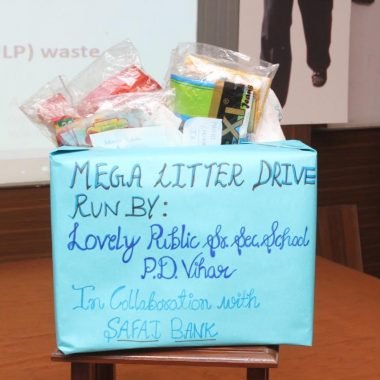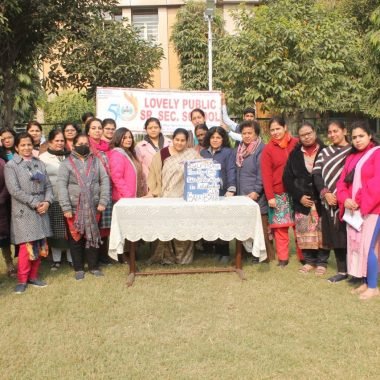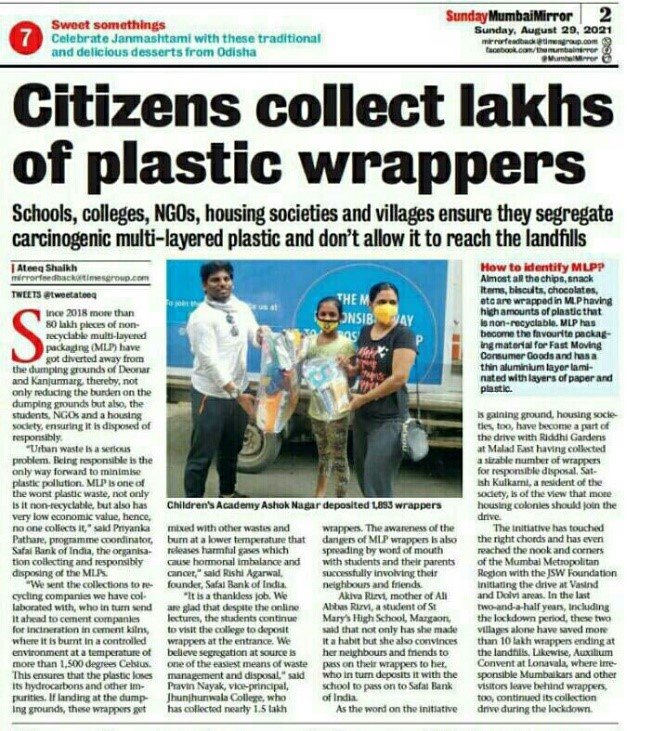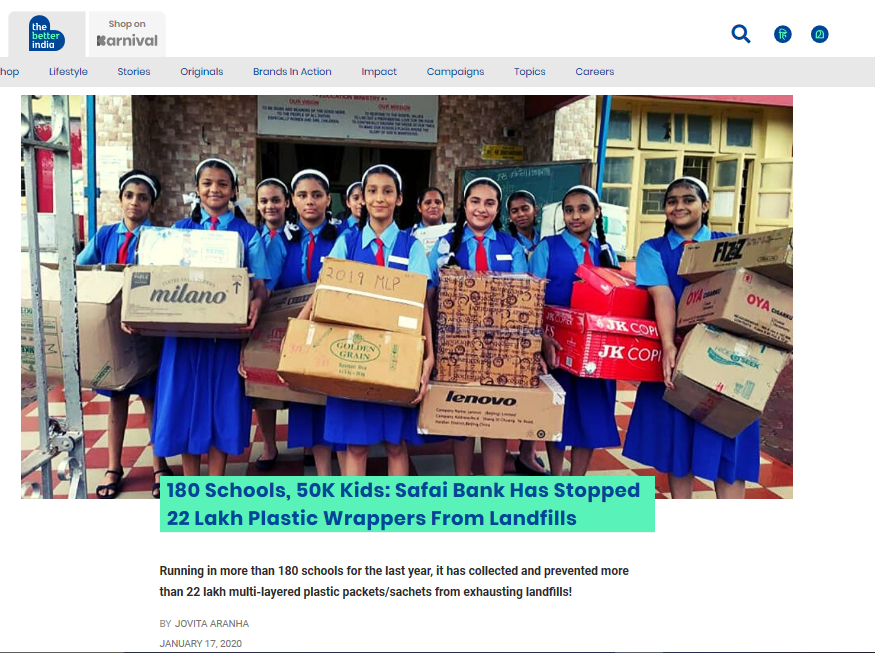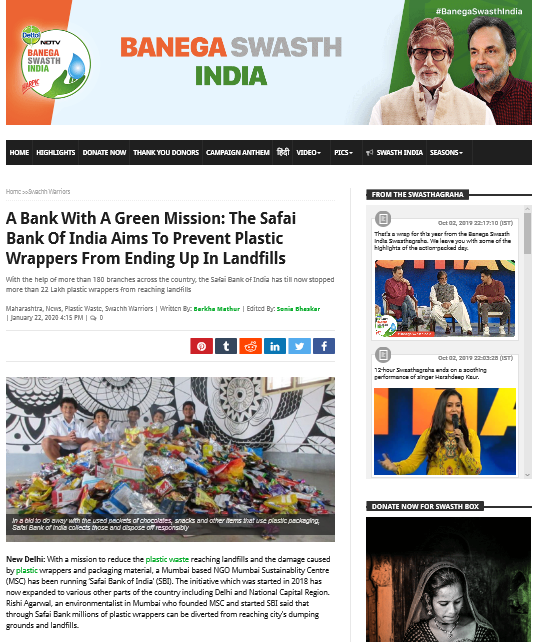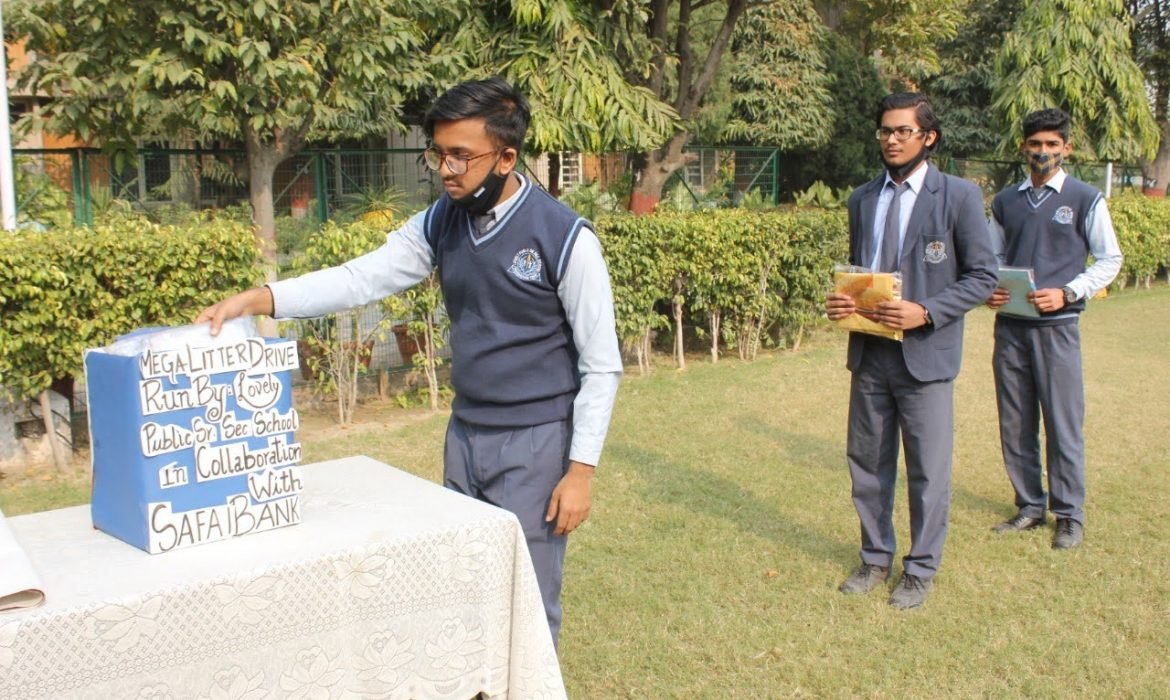
Safai Bank of India
Environmental Education
FOUNDER/ PROJECT LEAD
Mr. Rishi Aggarwal
PARTNERS/SPONSORS
Mr. Rishi Aggarwal
PROJECT LOCATION
Mumbai & NCR (What to add in location description) – Mumbai the capital city of the state of Maharashtra and the most populous city in India and eighth most populous city in the world has a population of about 2 crores living under its roof. It is located on the western coasts of India and thus is also home of many beautiful beaches which are a famous among the tourists as well as the locals of the city. The city being this populated and a sought-after destination for people seeking employment and tourists has to manage the waste generated by this population as well. A research showed that one of the coastline of Mumbai of Versova Beach which is about 10 km generates a 100 tonnes of trash in a year which includes mostly plastic waste such as plastic bottles, wrappers, cement bags, fishing nets etc.

PROJECT GOAL
To fight single use plastic pollution by working with Multi-Laminated Packaging (MLP) waste only, which is one of the largest types of plastic waste being generated and has poor disposal procedures.
PROJECT INTRODUCTION
Safai Bank of India is a project by Mumbai Sustainability Centre, a non-profit company registered under Section 8 of the Companies Act 2013. Waste management in the urban environment is a focus area of the project. Safai Bank of India is an exciting platform for making citizens of the country especially the one located in urban areas committed towards a cleaner India. It is a simple and effective mechanism to divert millions of waste items from reaching city dumping grounds. The platform is currently working with Multi-Laminated Packaging (MLP) waste only, which is one of the largest types of plastic waste being generated and having poor disposal procedures. Safai Bank mimics the working of a regular Bank. Where you deposit MLP instead of money. There is a Branch, there are Account Holders and there are Branch Coordinators.
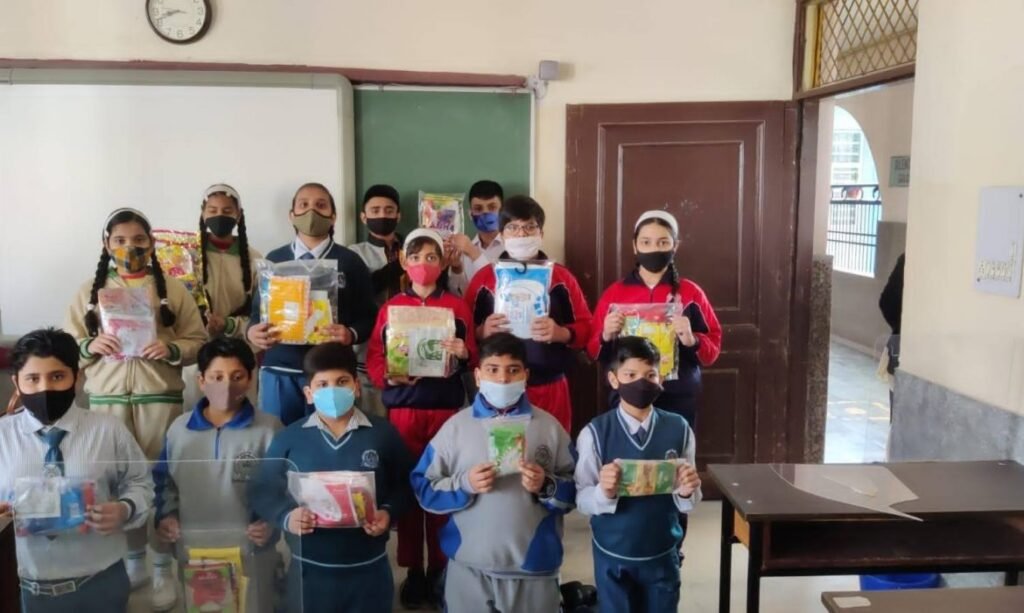
DETAILS OF THE PROJECT
Waste Management Rules of 2016 suggest two methods of disposal:
- Use it for making asphalt roads.
- Use as a fuel in cement factories via a technique called co-processing.
The Safai Bank focuses on co-processing the collected MLP waste.
The functioning of the bank:
The Safai Bank of India mimics the functioning of the normal commercial banks. Similar to the commercial banks it has account holders, branches, branch managers.
Account Holders:
Students who wish to be responsible towards their waste will open an account with a Branch and once in a week visit the branch and deposit their waste.
Branches:
Branches are where account holder come to deposit their waste. Since students are the focus, the branches are educational institutions. Students will deposit waste only in their own Branch and not another one.
Branch Managers:
Just like Account Holders, Branch Managers are integral to ensure that the system works smoothly. Branch Managers are individuals who take pride to volunteer in supporting the functioning of a particular branch. Ideally this should be an institute or location which they are already are an integral part of. Branch Managers could do either or all of these roles:
- Accept the waste and login the details into the system for each account holder.
- Train other volunteers to service the account holders.
- Ensure that the collected waste is stored securely within the Branch premises.
- Coordinate with City Coordinators to ensure that the waste is collected once in a month.
- Keep a monthly display of the waste collected at the Branch to make the account holders appreciate what they have managed to divert from the dumping grounds.
- Any other task as required.
City Managers:
City Managers will oversee the functioning of various branches in their city. This is a voluntary role currently and those who volunteer can choose how much time and effort they may like to contribute. There can be multiple City Managers and it is expected that they contribute within themselves.
The Educational Institutes which agree to open branches will function once in a week only on a designated day and hours. The institute will provide a small space consisting of two tables and a few chairs to the Branch staff to sit and accept the deposits from the account holders. They could need an electricity connection for their devices and also a space protected from the weather elements. The institutes will also provide a storage space for storing the collected waste which will be cleared once in a month. The waste stored at the Branches is collected once in a month and transported to the City Depot. At the City Depot waste from a number of Branches is stored. At the City Depot the waste will get get sorted and baled and ready for final disposal either in road making or a cement kiln. The complete system is run on an IT backend where all the deposits by the Account Holders are recorded accurately and available to the account holders for viewing in an e-passbook online. The Branch Managers have logins which allows them to access the system and make deposits.
Rewards and Appreciation:
Rewards and appreciation are a key feature of the system and linked to the amount of waste collected at the individual, branch, and city level. The best performers in each category will be provided with attractive certificates and other rewards we will tie up with sponsors.
SOP
- For residential buildings/complexes
Step 1: Every family should collect at home. Wrappers should be dusted and clean. For chocolates and ice creams wash the wrappers. Tetra packs should be thoroughly rinsed and dried.
Step 2: At a regular frequency, all the residents bring their collections to a designated spot. e.g., the society office.
There should be one or two coordinators to manage.
View More
e.g., every Sunday 10:30 / second Sunday or One Sunday a month All members should have counted the number of wrappers and tetra packs. At the office, there should be a register in which the collections are recorded by family and date. This can be then entered into the IT system using the link below by designated coordinators or by the SBI office. https://admin.safaibank.org/login.aspx
Step 3: The collection should be stored securely for pick up by the Safai Bank of India van. Pickups will mostly be on the last Saturday of every month. Any changes will be intimated in advance.
- For Academic Institutions: The SOP remains the same accept students are encouraged to bring MLP waste from their households with help. of presentations and workshops. The waste is then collected from the institutions and transferred to storage.
PROJECT IMPACT
- Outcome not Awareness
- Empowerment through action
- Learning materiality, the science of combustion, dioxins and other pollutants, accounting, and management and much more
- Hopeful and confident through individual responsibility not despondent through the alarming narrative around climate.
- Creating Green Jobs (Community Coordinators)
SUSTAINABLE DEVELOPMENT GOALS
- Climate Action
- Life on Land
- Responsible Consumption and Production
- Partnerships for the Goals
- Quality Education
- Life Below Water
- Clean Water and Sanitation
- Sustainable Cities and Communities
SAFAI BANK: MATERIAL FLOW OF DAILY USE MLP WASTE

